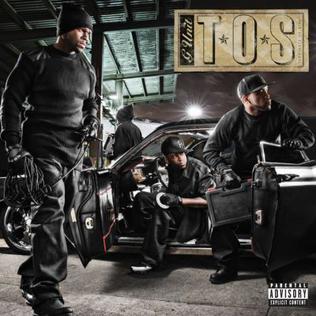Related Research Articles

Lloyd Price was an American R&B and rock 'n' roll singer, known as "Mr. Personality", after his 1959 million-selling hit, "Personality". His first recording, "Lawdy Miss Clawdy", was a hit for Specialty Records in 1952. He continued to release records, but none were as popular until several years later, when he refined the New Orleans beat and achieved a series of national hits. He was inducted into the Rock and Roll Hall of Fame in 1998.

Johnny Paycheck was an American country music singer and Grand Ole Opry member notable for recording the David Allan Coe song "Take This Job and Shove It". He achieved his greatest success in the 1970s as a force in country music's "outlaw movement" popularized by artists Hank Williams Jr., Waylon Jennings, Willie Nelson, Billy Joe Shaver, and Merle Haggard. In 1980, Paycheck appeared on the PBS music program Austin City Limits, though in the ensuing decade, his music career slowed due to drug, alcohol, and legal problems. He served a prison sentence in the early 1990s, and his declining health effectively ended his career in early 2000. In autographs, Paycheck signed his name "PayCheck".

"Shake, Rattle and Roll" is a song, written in 1954 by Jesse Stone. The original recording by Big Joe Turner is ranked number 127 on the Rolling Stone magazine's list of The 500 Greatest Songs of All Time.

John Marty Stuart is an American country and bluegrass music singer, songwriter, and musician. Active since 1968, Stuart initially toured with Lester Flatt, and then in Johnny Cash's road band before beginning work as a solo artist in the early 1980s. His greatest commercial success came in the first half of the 1990s on MCA Records Nashville. Stuart has recorded over 20 studio albums, and has charted over 30 times on the Billboard Hot Country Songs charts. His highest chart entry is "The Whiskey Ain't Workin'", a duet with Travis Tritt. Stuart has also won five Grammy Awards out of 16 nominations. He is known for his combination of rockabilly, country rock, and bluegrass music influences, his frequent collaborations and cover songs, and his distinctive stage dress. Stuart is also a member of the Grand Ole Opry and Country Music Hall of Fame.

Rodney Roy Jerkins, also known by his stage name Darkchild, is an American record producer, rapper, and songwriter. He has collaborated with a broad range of popular artists.
Danielle Anne Brisebois is an American producer, singer-songwriter and former child actress. She is best known for her role as Stephanie Mills on the Norman Lear-produced sitcoms All in the Family and its spin-off Archie Bunker's Place, as well as playing Molly in the original Broadway production of the musical Annie.
"I'm Gonna Be Strong" is a song written by the songwriting duo Barry Mann and Cynthia Weil. It was first recorded by Frankie Laine in 1963 and released as a single on Columbia Records. However, the song did not become a major hit until 1964, when Gene Pitney released his version as a single. It was also a single released by the 1980 band Blue Angel, with lead vocals provided by future star Cyndi Lauper. This release was prior to Lauper's solo career; however, Lauper re-recorded the track and released it as a single in 1994. The song was also featured on 1982's Quiet Lies album by Grammy winner Juice Newton. Though Newton never released the song as a single, her remake was later added as a bonus track to her first Greatest Hits collection.

George Mark Collie is an American country music singer, songwriter, musician, actor, record producer, and fundraiser for Type 1 diabetes study. He has won awards and acclaim for his music, his acting, and his philanthropy. His singing career has included five major-label albums: four for MCA Nashville and one for Giant Records. Sixteen of his singles have charted on Hot Country Songs, including the top ten hits "Even the Man in the Moon Is Cryin'" and "Born to Love You".
Graeme Revell is a New Zealand musician and composer. He came to prominence in the 1980s as the leader of the industrial/electronic group SPK. Since the 1990s he has worked primarily as a film score composer.

David Eldon Lasley was an American recording artist, singer, musician and songwriter. He was best known as a touring background singer for James Taylor, as a session singer on recordings by artists including Taylor, Bonnie Raitt, Luther Vandross, Chic, Aretha Franklin, Dionne Warwick, Bette Midler, Cher, Dusty Springfield and Boz Scaggs; as a songwriter for artists including Bonnie Raitt, Whitney Houston, Anita Baker, Maxine Nightingale, Rita Coolidge, Crystal Gayle, and Luther Vandross; and for his solo albums, albums with his 1970s vocal group Rosie, and for his early years in Detroit with his vocal group The Utopias.
Lonzo and Oscar were an American country music duo founded in 1945 originally consisting of Lloyd "Lonzo" George (1924–1991) and Rollin "Oscar" Sullivan (1919–2012), best known for being the first to perform the 1948 song "I'm My Own Grandpa". George departed in 1950, and Lonzo was later portrayed by Johnny Sullivan (1917–1967) from 1950 to 1967 and by David Hooten from 1967 to 1985, when the band retired. Lonzo and Oscar owned a record label, a recording studio, and a music publishing company. The recording studio and the record label were called "Nugget". The music publishing company was called "Lonzo and Oscar (BMI)". Melba Montgomery's first recordings were released on Nugget Records in the late 1950s through the early 1960s. The songs which Starday Records released by Melba Montgomery in the 1960s came from Nugget Records. Harlan Howard recorded an album with Nugget Records. Danny Harrison, Melba Montgomery, and Darnell Miller wrote for Lonzo and Oscar's publishing company, Lonzo and Oscar (BMI).

"Old Time Rock and Roll" is a song written by George Jackson and Thomas E. Jones III, with uncredited lyrics by Bob Seger. It was recorded by Seger for his tenth studio album Stranger in Town. It was also released as a single in 1979. It is a sentimentalized look back at the music of the original rock 'n' roll era and has often been referenced as Seger's favorite song. The song gained renewed popularity after being featured in the 1983 film Risky Business. It has since become a standard in popular music and was ranked number two on the Amusement & Music Operators Association's survey of the Top 40 Jukebox Singles of All Time in 1996. It was also listed as one of the Songs of the Century in 2001 and ranked No. 100 in the American Film Institute's 100 Years...100 Songs poll in 2004 of the top songs in American cinema.
"Superstar" is a 1969 song written by Bonnie Bramlett and Leon Russell with a songwriting credit also given to Delaney Bramlett that has been a hit for many artists in different genres and interpretations in the years since; the best-known versions are by the Carpenters in 1971, and by Luther Vandross in 1983.

T·O·S is the second and final studio album by rap group G-Unit. It was the group's first album in five years since their previous album, Beg for Mercy. The title of the album was originally announced to be Shoot to Kill and then Lock & Load, with the eventual name being Terminate on Sight. The album was originally scheduled to be released on June 24, 2008, but was rescheduled to July 1.

"Donna" is a song written by Ritchie Valens, featuring the '50s progression. The song was released in 1958 on Del-Fi Records. Written as a tribute to his high school sweetheart Donna Ludwig, it was Valens' highest-charting single, reaching No. 2 on the Billboard Hot 100 chart the following year.

John McDaid is a singer, songwriter, musician, and record producer from Northern Ireland. He is a member of the band Snow Patrol and has written songs with other artists, including Ed Sheeran, P!nk, and Robbie Williams.
Titus Lee Turner was an American R&B and East Coast blues singer and songwriter. His best-remembered recordings are "We Told You Not to Marry" and "Sound-Off". He also wrote "Leave My Kitten Alone", "Sticks and Stones" and "Tell Me Why".

"(I'm a) Road Runner" is a hit song by Junior Walker & the Allstars, and was the title track of the successful 1966 album Road Runner. Written by the team of Holland–Dozier–Holland, it was released on the Tamla (Motown) label in 1966 and reached the top twenty in the U.S. and the UK.

"All That I've Got (I'm Gonna Give It to You)" is a song by American soul musician Billy Preston that was released in January 1970 as his third single on Apple Records. It was written by Preston and his fellow Apple artist Doris Troy and produced by George Harrison. In the United States, the single missed the Billboard Hot 100 chart, peaking at number 108. According to Harrison, the song was Preston's musical response to criticism that he had abandoned his black soul roots by embracing rock music.
"Last Train to San Fernando" is a Trinidadian calypso song written by Sylvester DeVere, Randolph Padmore, and Mighty Dictator, the latter being a pseudonym for Kenny St. Bernard.
References
- ↑ BMI entry for song BMI, accessed May 21, 2012.
- ↑ Burke, Ken (1998). "Lloyd Price". In Graff, Gary; Durchholz, Daniel (eds.). MusicHound Rock: The Essential Album Guide. Detroit: Visible Ink Press. pp. 895–896.
- ↑ BMI entry for song BMI, accessed May 21, 2012.
- ↑ BMI entry for song BMI, accessed May 21, 2012.
- ↑ Waltrous, Peter (Jul 8, 1994). ROCK REVIEW; Lloyd Price And the Joy Of the Past Updated: [Review]. p. C.21. ISSN 0362-4331.
{{cite book}}:|newspaper=ignored (help) - ↑ Whitburn, Joel (2004). Top R&B/Hip-Hop Singles: 1942-2004. Record Research. p. 470.
- ↑ "officialcharts.com". officialcharts.com. Retrieved July 27, 2021.
- Waltrous, Peter (Jul 8, 1994). ROCK REVIEW; Lloyd Price And the Joy Of the Past Updated: [Review]. p. C.21. ISSN 0362-4331.
{{cite book}}:|newspaper=ignored (help) - Price, Lloyd. "Current Biography Electronic". Bio Ref Bank.
- Minogue, J (11 April 2018). "Lloyd Price I'm Gonna Get Married". DailyDooWop. Retrieved 3 May 2021.